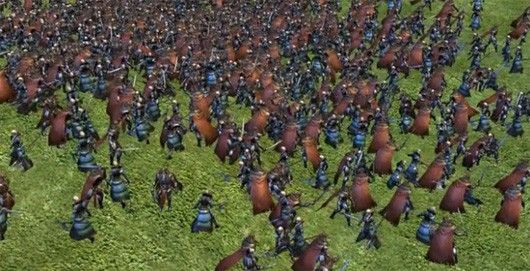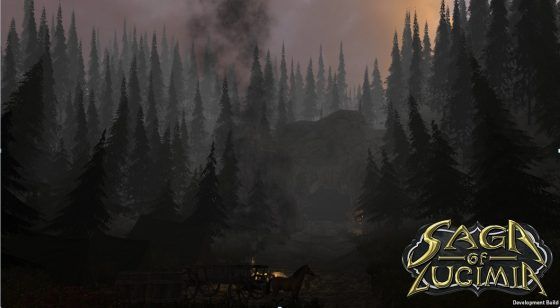A wise lyricist once said "Don't call it a comeback, I've been here for years". So it is with the MMO genre, which has bobbed along the tumuluous seas of change like a plucky little tugboat. Despite changes in attitude, monetization and availability, MMOs are going to stay around for a while, here's why the MMO is not dead.
Designed to Endure
No matter how many subscriptions World of Warcraft loses, it is still a mutant of MMO subscription revenue. EverQuest has been around nearly as long as the internet. A slight exaggeration, but work with me here. MMOs are celebrating anniversaries in the face of titans and in spite of small titles falling down, even while other game genres are content to crank out annual editions of the same old formula. This is due to a genre designed to expand and a fanbase motivated to pay for that expansion.
No other game genre out there carries this sort of staying power and official support. Companies keep building up and supporting their titles and even work to sustain themselves when facing possible shutdown or even their company going under. That's unheard of in a video game market that used to be exclusively one-and-done unless a proper sequel is announced. If someone proposes an MMO, they understand that it's a base to build an ever-growing tower on, not just a little house.
Riding the Seas of Change
With the advent of free-to-play, buy-to-play and other alternate payment models, MMOs have managed to whether an increasing market and a change of attitudes about what is profitable, offering themselves to a broader swath of customers in the process.
Whether you're someone watching your budget, a person that likes to treat yourself with a big splash of shiny or someone who offers support for a title via regular subscription, there's a payment model for you. In fact, many MMOs wear their monetization as a badge of honor, or at the least a marketing ploy. How many MMOs do you know coming out that use their way to buy in as a point of pride? From Camelot Unchained's Mark Jacobs stating they're a subscription-only service to Guild Wars 2 touting their free-to-play move, MMOs have adopted monetization as a way to court an audience in a world where a flat sub fee was once assumed the only feasible way to turn a profit. This is a genre that has shown it's adaptable to the chances of commerce, and in the case of titles like Star Wars: The Old Republic it's shown that the old line of thinking isn't always the right one.
A Genre That Morphs
While many might bemoan the fact that MMOs are moving away from being fully virtual worlds, the experience of titles out now and coming soon is one of emergent design and awesome ideas. We're getting immense warfare, or open sandboxes, or guided thrills or games built for competition.
With games like Chronicles of Elyria, Camelot Unchained, Crowfall, Orcs Must Die Unchained and Saga of Lucimia in the works, and titles like EVE Online, Overwatch, Tree of Savior and World of Warcraft, we're seeing more variance and more innovation coming out and available now. MMOs are becoming as diverse and as unique as the people who play them. New ideas are being tried and new game modes keep coming while other genres of games stick to a general formula. MMOs aren't evolving in a singular direction, they're proliferating in many. It's a genre capable of trying new things, and we're seeing more companies willing to try the unheard of. Even if Internet Warlords claim it to be impossible.
Can't Stop the Internet
I'm typing this up on a mobile phone right now from a wi-fi signal at my usual place of work. That's the kind of interconnected world we live in. Gaming has taken online play as the standard, and digital interaction is such a norm we have a name for the type of media. MMOs understand this and have been at the forefront, and now with the growing online world there are more people playing than ever.
With more players and more options to monetize, we're seeing an uptick in MMO game development overall to meet this growing demand. While it cerainly can feel like the market is diluted, the amount of people playing is still immense overall, and online gaming is fast becoming an expected feature instead of a bullet point on the back of the package. In light of all this, MMOs are not just part of that, they're ahead of the times.
The eSports Factor
Like it or not, eSports is a boom front. Digital competition is a phenomenon that has exploded in popularity and more titles are being developed for the scene. MMOs are no exception, as PvP has gone from a side activity to a forefront of design.
MOBA's have led the way in this front, and the repertoire of games being included for competitive leagues keeps on growing. With titles like Overwatch and Heroes of the Storm, and full competition leagues for MMORPG's like Blade and Soul and Guild Wars 2, eSports have been embraced by MMOs as a showcase for what their games can do, which only further affirms just how adaptable this genre really is. MMOs are no longer the dominion of assumed basement-dwelling castaways, but a household name thanks to digital competition.
Gaming itself has endured despite a crash, attempts at government regulation and an ever-fluctuating economy. MMOs have cut out their own niche and keep on keeping on in the face of so many different odds. The good games will rise to the challenge, the weak games won't, and MMOs will iterate and grow in ways that are probably not entirely expected or anticipated.
I've been doing this online gaming thing since MechWarrior 3 and the MSN Gaming Zone on a 56k modem, and have been in love with MMOs since EverQuest and Final Fantasy XI. The directions this genre has gone are unreal and exciting, and should be embraced and celebrated. MMO developers are too creative and MMO gamers too passionate to expect anything less.





